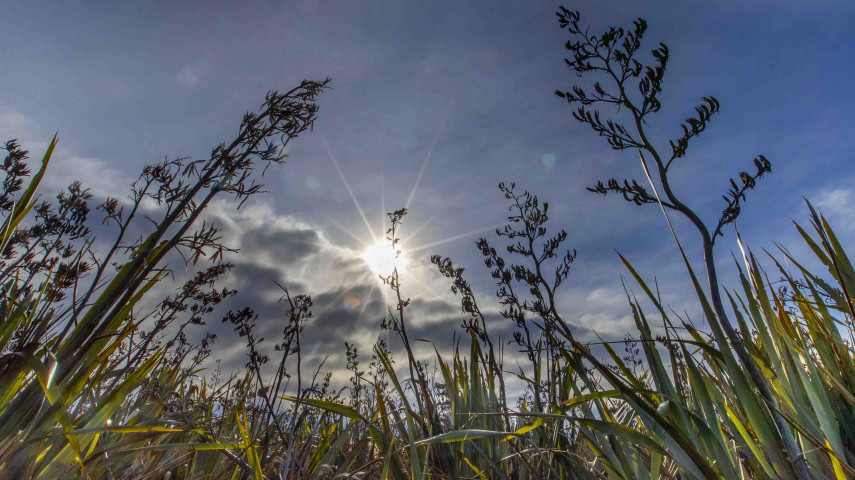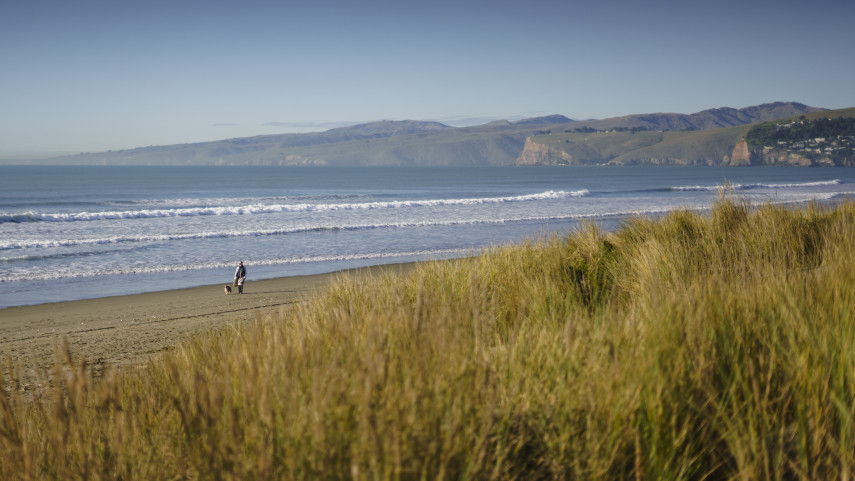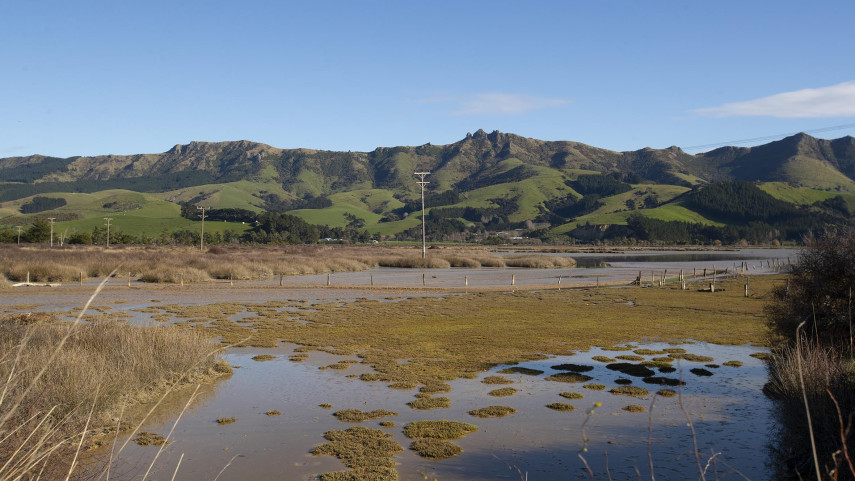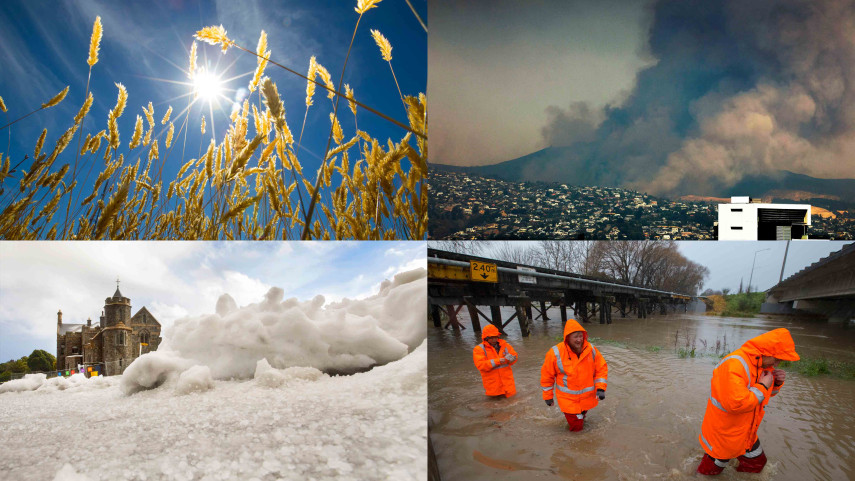As greenhouse gases build up in our atmosphere, they trap heat, warming our climate. We can expect milder winters and more hot weather in summer, which can affect people, animals, plants, infrastructure and our water supplies.

Expected impacts
Our average temperature could rise by 0.8 to 1.4°C by 2050 and 3°C by 2090.
Christchurch typically gets around 20 hot days over 25°C each year. This is expected to increase to:
- 25 to 40 hot days by 2050
- More than 60 hot days by 2090, particularly for parts of Banks Peninsula and inland areas
Christchurch typically gets around 14 frosts per year. This is expected to decrease to:
- Zero to 15 frosts per year by 2050
- No frosts by 2090
Our seasonal temperatures will change, particularly in autumn, when summer will extend. We can also expect more frequent and severe periods of drought.
Average rainfall will not change much by 2050. However, we can expect more seasonal variation, with drier summers and autumns and wetter winters. Banks Peninsula could see 5 to 15 per cent less summer rainfall.
What this means
- Heat stress could affect the health of people, animals and plants.
- Heating costs may decrease in winter, but cooling costs could increase in summer.
- Demand for drinking water and irrigation may increase at times when water supply is limited, meaning restrictions on irrigation and outdoor watering will be more likely.
- Less water could be available for drinking, irrigation and agriculture during periods of drought, especially on Banks Peninsula. Average river flows maybe 20 per cent less by 2090.
- The risk of wildfire could increase, especially at times of high winds and drought, when water for firefighting is scarce.
- Water quality in our rivers and lakes may deteriorate, made worse by increased water use for human activity and the risk of algal blooms.
- Drought and fires could reduce vegetation on hills, increasing landslides and soil erosion during intense rainfall and strong winds. There could be permanent loss of soil in some areas of Banks Peninsula, preventing re-vegetation.
- The health of ecosystems may be affected, with some species moving or becoming extinct.
- Loss of biodiversity can impact mahinga kai (food gathering) and customary practices.
- Current agriculture and horticulture could be at risk of new pests and diseases. Higher temperatures may allow different crops to be grown.
- Summer leisure and the tourism season could be extended, but the ski season could be shorter, with glaciers continuing to disappear.
What you can do before hot, dry weather
- Limit heat entering your home during summer by placing external shading over north- and west-facing windows, such as shade sails, pergolas, umbrellas or deciduous trees. Retractable awnings offer flexibility and can be stowed away during strong winds and over winter.
- A well-insulated home is easier to keep cool in summer. Insulation subsidies are available for some households from Warmer Kiwi Homes(external link).
- Reduce water use in summer by choosing drought-tolerant plants, minimising areas of lawn and only watering during cooler parts of the day. Avoid watering lawns entirely – grass naturally browns in summer and will turn green again after rain. This reduces both watering and mowing needs.
- Adding mulch, weed mats or compost over your garden can help reduce water loss and the need for weeding. Light-coloured mulch will also reflect heat, reducing the temperature in your garden during times of high heat.
- Report any water leaks on the street to the Council through Snap Send Solve.
What you can do during hot, dry weather
- Take extra care of people who can be vulnerable to hot, dry and windy weather, such as babies, elderly, people with asthma or hay fever, and outdoor workers.
- Be sun smart – wear sun hats, sunblock and sunglasses to protect yourself and children, stay out of the sun during the hottest part of the day and keep well hydrated.
- Keep your home well-ventilated by opening windows, but during periods of extreme heat, close them, pull curtains or blinds and use a heat pump to maintain a comfortable indoor temperature.
- To maximise a fan's cooling effect, angle it towards an open window to help draw in cooler outside air instead of circulating warm indoor air. Pair this with an open window on the shady side of your home to create a cooling draft.
- Reduce your household water use by taking shorter showers, fewer baths, turning the tap off when brushing your teeth and only filling the jug or kettle with the water you need.
What we’re doing
- Improving our water supply network – We have an extensive water supply network and maintain it to prevent leaks and to manage our water resources sustainably. Learn more about our water supply.
- Community water conservation – We provide information to households, businesses and schools about water conservation and monitor the water used by the community to identify and help the largest users to conserve water. Learn how to water like we oughta.
- Public drinking fountains – We’ve installed drinking fountains in parks and public spaces throughout the city to ensure people have easy access to drinking water. View our map of public drinking fountains(external link).
- Tree planting to provide shade and shelter – We’re planting trees throughout the city to provide more shade and shelter over streets, parks and public spaces. Trees provide a wide range of benefits for the city and can significantly reduce temperatures in hot weather. Learn more about urban forests.
Related news

Fund open to support sustainable community initiatives
The Sustainability Fund is open now for applications for projects that help meet the Christchurch City Council’s climate change objective and targets.
1 Dec 2025
New study reveals lay of the land for entire district
A new study of vertical land movement is offering a much clearer picture of how the land is slowly rising and sinking post-earthquakes across Christchurch, Banks Peninsula, and beyond.
22 Oct 2025
Upskill on climate change with UC – for free
Ōtautahi Christchurch residents will soon have free access to a new online learning course designed to build understanding and resilience in the face of climate change.
14 Oct 2025